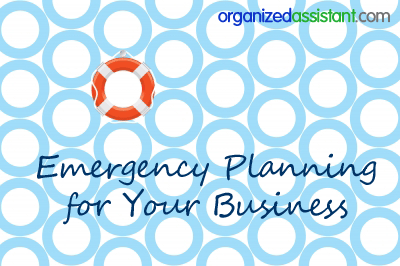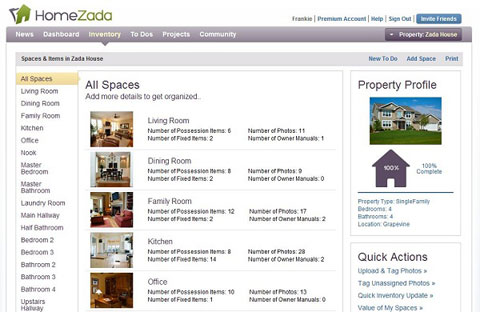Business Emergency Planning: Why Every Small Business Needs a Plan
This page may contain links to Amazon.com or other sites from which I may receive commission on purchases you make after clicking on such links. Read my full Disclosure Policy

A fresh calendar often propels us to make changes, and creating and implementing blogging schedules, financial plans, and standard operating procedures are high on many small business owners’ new year to-do lists. If business emergency planning is on your list, you’ll definitely want to read this article by Beth Bartlett, our first guest blogger for 2014.

Every small business owner hopes the unthinkable never happens, but the nightly news tells a different story. Storms, fires and hurricanes cause power outages and mandatory evacuations of neighborhoods and towns every year, while terrorist attacks have made everyone aware of the phrase “shelter in place.” Plan ahead for the worst, and your business can continue through almost any emergency.
Mobile Office
Deal with just one days-long power outage or evacuation, and you’ll see the need for a mobile office. A good mobile office should fit in a laptop case or backpack, and should include a portable computer such as a laptop, netbook or tablet, extra charge cords and data transfer cords, a flash drive with all your needed passwords and backed-up files, and a small power inverter that you can plug into your car’s cigarette lighter to charge up your phone and computer. If you have a newer car, you may already have USB ports available. Tuck some notepads, pens and business cards in your office case as well. Having this setup ready to go means your professional life can continue, even if your home life is up in the air.

A mobile office can help prevent a business disaster.
Staying Connected
The Internet is a huge part of doing business, and you’ll need to answer incoming emails, texts and even messages on social media networks. These days, it’s easy to assume everyone has wifi and you’ll be covered, but why take the chance? Check to see if your phone has the capability to become a mobile hotspot and provide wifi to your devices. You can also contact your wireless provider about adding a USB modem to your account so you can stay connected anywhere you go. Being caught in an emergency often means your days are chaotic, so know how to set auto-responders on your email and feel free to set limited hours for business communication.
Business Bag
This survival kit is multi-purpose. Even if you have to evacuate your home, you still have to make a living, and if you’re at a client’s home when a shelter-in-place order comes down, you’ll be prepared to spend a couple of hours or a night away from home. In an overnight case or duffel bag, pack as if you’re attending a weekend conference with two sets of wrinkle-resistant clothes, a matching blazer or light jacket, business casual shoes, business cards, a plastic bag filled with trial-size personal care items and a spare charge cord for your phone or tablet. Slip some meal bars and a couple of water bottles in the outside pocket, and any other essentials you might need. Keep your business bag in your car, so it’s always available if you need it. Whether you end up in a hotel or a friend’s house, you’ll have the tools to present yourself professionally and keep working. If you’re relocated to a new area, those cards will help you drum up new business while you’re waiting to go home.
The Long Haul
Even with the best preparations, you may not be able to work for days, weeks or longer. That’s when it’s important to have an emergency fund set aside to help with the bills. Experts recommend savings should be able to cover three to six months of regular expenses, but the number depends on your comfort level. Make sure your emergency fund is easily accessible, whether you choose a savings, money market or other type of account. It’s also a good idea to have a small amount of emergency cash on hand too, in case of sudden evacuations or situations where the power and phone lines would be down and ATMs are unavailable.
For more great ideas on emergency preparedness, visit the Professional Organizers Blog Carnival page on this site.
Image Credits:
- Image courtesy of artzenter at FreeDigitalPhotos.net
- Image courtesy of adamr at FreeDigitalPhotos.net



You’ve covered some of the most vital points here. I’d like to add one more though – from my own experience. Make sure one person has the information required to set up auto-responders or to contact your booked clients – imagine that emergency is you ending up in the hospital.- this scenario isn’t that far fetched unfortunately!
That is such a valid point, Deanne – thanks for the suggestion!
Great ideas! I have been doing a series on my site on preparing in case of emergency. I need to add your info to my list. Is it Ok to quote you/use a portion of this article? I would credit you/link to your post.
Thanks!
That would be great, Val! Just make sure you list the author as Beth Bartlett and not me. 🙂